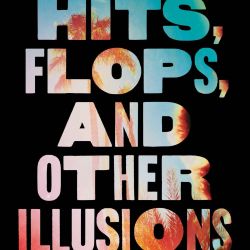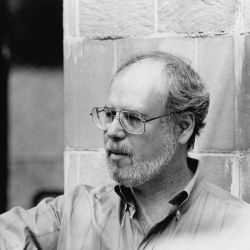Share

Writers on Film
Hanna Flint is a Strong Female Character
I talk to Hanna Flint, critic, broadcaster and author of Strong Female Character, a personal and incisive reflection on how cinema has been the key to understanding herself and the world we live in.
A feminist of mixed-race heritage, Hanna has succeeded in an industry not designed for people like her. Interweaving anecdotes from familial and personal experiences – episodes of messy sex, introspection, and that time actor Vincent D’Onofrio tweeted that Hanna Flint sounded ‘like a secret agent’ – she offers a critical eye on the screen’s representation of women and ethnic minorities – their impact on her life, body image and ambitions – with the humour and eloquence that has made her a leading film critic of her generation. Divided into sections Origin Story, Coming of Age, Adult Material, Workplace Drama and Strong Female Character, the book ponders how the creative industries could better reflect our multicultural society.
Warm, funny and engaging and full of film-infused lessons, Strong Female Character will appeal to readers of all backgrounds and seeks to help us better see ourselves in our own eyes rather than letting others decide who and what we can be.
More episodes
View all episodes

153. Paul Duncan on Dr. No
01:07:32Paul Duncan talks Dr. No, and the making of James Bond's first cinematic asdventure. Book now available from Taschen.
152. Ed Zwick on Hits, Flops, and Other Illusions
49:51A NEW YORK TIMES BESTSELLER * LOS ANGELES TIMES BESTSELLER * USA TODAY BESTSELLERThis heartfelt and wry career memoir from the director of Blood Diamond, The Last Samurai, Legends of the Fall, About Last Night, and Glory, creator of the show thirtysomething, and executive producer of My So-Called Life, gives a dishy, behind-the-scenes look at working with some of the biggest names in Hollywood.“I’ll be dropping a few names,” Ed Zwick confesses in the introduction to his book. “Over the years I have worked with self-proclaimed masters-of-the-universe, unheralded geniuses, hacks, sociopaths, savants, and saints.”He has encountered these Hollywood types during four decades of directing, producing, and writing projects that have collectively received eighteen Academy Award nominations (seven wins) and sixty-seven Emmy nominations (twenty-two wins). Though there are many factors behind such success, including luck and the contributions of his creative partner Marshall Herskovitz, he’s known to have a special talent for bringing out the best in the people he’s worked with, especially the actors. In those intense collaborations, he’s sought to discover the small pieces of connective tissue, vulnerability, and fellowship that can help an actor realize their character in full.Talents whom he spotted early include Brad Pitt, Matt Damon, Denzel Washington, Claire Danes, and Jared Leto. Established stars he worked closely with include Leonardo DiCaprio, Anthony Hopkins, Tom Cruise, Julia Roberts, Anne Hathaway, Daniel Craig, Jake Gyllenhaal, Bruce Willis, Demi Moore, and Jennifer Connelly. He also sued Harvey Weinstein over the production of Shakespeare in Love—and won. He shares personal stories about all these people, and more.Written mostly with love, sometimes with rue, this memoir is also a meditation on working, sprinkled throughout with tips for anyone who has ever imagined writing, directing, or producing for the screen. Fans with an appreciation for the beautiful mysteries—as well as the unsightly, often comic truths—of crafting film and television won’t want to miss it.
151. Robert P Kolker and Marsha Gordon talk Film, Form and Culture
57:17This fifth edition of Film, Form, and Culture by Robert P Kolker and Marsha Gordon offers a lively introduction to both the formal and cultural aspects of film.Additional resources for students and teachers can be found on the eResource, which includes case studies, discussion questions, and links to useful websites.Get the book HERE.
150. Neil Alcock talks Hitchcock and Hitchology
50:45MURDER! MOTHERS! MEN ON THE RUN!Film fans know these are just a few key ingredients of Alfred Hitchcock’s movies. When Hitchcock fused these elements with his innovative directorial approach, that blend of familiar themes and stylistic ingenuity became known as ‘Hitchcockian’. In a refreshingly original way, HITCHOLOGY considers how Hitchcock used these narrative tropes and formal flourishes to create some of cinema’s most unforgettable experiences.Alongside unique takes on every film and TV episode Hitchcock directed, HITCHOLOGY also examines his collaborators, his cameos, other films in the Hitchcock cinematic universe, and more. Passionately written with wit and warmth, HITCHOLOGY is an accessible introduction for newcomers to Hitchcock, and an insightful companion for devoted fans.Buy the book HERE.
149. Oscar Winning Screenwriter Bruce Rubin talks about his Life
01:06:48Bruce Joel Rubin is the Oscar winning screenwriter of Brainstorm, Ghost and Jacob's Ladder among others. His memoir It's Only a Movie is availbale here. And his book Three Visionary Screenplays is also available via this link.
148. Christian Esquevin talks Designing Hollywood
46:59Since the 1920s, fashion has played a central role in Hollywood. As the movie-going population consisted largely of women, studios made a concerted effort to attract a female audience by foregrounding fashion. Magazines featured actresses like Jean Harlow and Joan Crawford bedecked in luxurious gowns, selling their glamour as enthusiastically as the film itself. Whereas actors and actresses previously wore their own clothing, major studios hired costume designers and wardrobe staff to fabricate bespoke costumes for their film stars. Designers from a variety of backgrounds, including haute couture and art design, were offered long-term contracts to work on multiple movies. Though their work typically went uncredited, they were charged with creating an image for each star that would help define an actor both on- and off-screen. The practice of working long-term with a single studio disappeared when the studio system began unraveling in the 1950s. By the 1970s, studios had disbanded their wardrobe departments and auctioned off their costumes and props. In Designing Hollywood: Studio Wardrobe in the Golden Age, Christian Esquevin showcases the designers who dressed Hollywood's stars from the late 1910s through the 1960s and the unique symbiosis they developed with their studios in creating iconic looks. Studio by studio, Esquevin details the careers of designers like Vera West, who worked on Universal productions such as Phantom of the Opera (1925), Dracula (1931), and Bride of Frankenstein (1931); William Travilla, the talent behind Marilyn Monroe's dresses in Gentleman Prefer Blondes (1953) and The Seven Year Itch (1955); and Walter Plunkett, the Oscar-winning designer for film classics like Gone with the Wind (1939) and An American in Paris (1951). Featuring black and white photographs of leading ladies in their iconic looks as well as captivating original color sketches, Designing Hollywood takes the reader on a journey from drawing board to silver screen.
147. Tom Shone on the Oscars and Dune Part 2
01:21:13Tom Shone is the bestselling author of The Nolan Variations, among several other books on cinema.
146. Stephen Lee Naish on Dennis Hopper, film director
01:03:35Stephen's book is availble here. Across his directorial films, American filmmaker Dennis Hopper used music and sound to propel the narrative, signpost the era in which the films were made, and delineate the characters’ place within American culture. This book explores five of Hopper’s films to show how this deep engagement with music to build character and setting continued throughout his career, as Hopper used folk, punk, hip-hop, and jazz to shape the worlds of his films in ways that influenced other filmmakers and foreshadowed the advent of the music video format.The author traces Hopper’s distinctive approach to the use of music through films from 1969 to 1990, including his innovative use of popular rock, pop, and folk in Easy Rider, his blending of diegetic performances of folk and Peruvian indigenous music in The Last Movie, his use of punk rock in Out of the Blue, incorporation of hip-hop and rap in Colors, and commissioning of a jazz/blues soundtrack by Miles Davis and John Lee Hooker for The Hot Spot. Uncovering the film soundtrack as a vital piece of the narrative, this concise and accessible book offers insights for academic readers in music and film studies, as well as all those interested in Hopper’s work.
145. Kubrick: an Odyssey
01:04:31The definitive biography of the creator of 2001: A Space Odyssey, The Shining, and A Clockwork Orange, presenting the most in-depth portrait yet of the groundbreaking film-maker.The enigmatic and elusive filmmaker Stanley Kubrick has not been treated to a full-length biography in over twenty years.Stanley Kubrick: An Odyssey fills that gap. This definitive book is based on access to the latest research, especially Kubrick's archive at the University of the Arts, London, as well as other private papers plus new interviews with family members and those who worked with him. It offers comprehensive and in-depth coverage of Kubrick’s personal, private, public, and working life. Stanley Kubrick: An Odyssey investigates not only the making of Kubrick's films, but also about those he wanted (but failed) to make like Burning Secret, Napoleon, Aryan Papers, and A.I.Revealingly, this immersive biography will puncture the controversial myths about the reclusive filmmaker who created some of the most important works of art of the twentieth century.